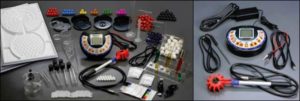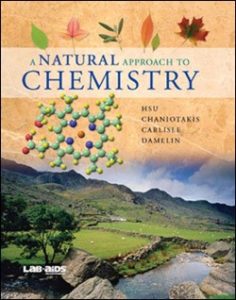Professional development brings teachers up to speed on new chemistry curriculum
Atlantis chemistry teacher Hank Madeira had an opportunity to go “back to school” last month.
He and colleague Julia Wilson, content leader for the Atlantis science department, took part in two days of training in Warren, Rhode Island at the East Bay Educational Collaborative (EBEC) to learn the ins and outs of a new “green” chemistry program being implemented at Atlantis.
The school recently received a $20,000 chemistry grant from the U.S. Office of Naval Research (ONR) Grant through the EBEC which provided for the professional development, plus new textbooks titled “A Natural Approach to Chemistry” and six new lab stations.
The lab stations are small, computer-based devices that come with several tools, including a test tube heater that can boil water in three minutes, temperature probe, spectrometer and more. Students can attach the tools to conduct various experiments and the data is collected and recorded by a computer.
“This is a very green approach to the science of chemistry. There is no Bunsen burner and therefore no flames or fumes, so it is much safer for the students,” Madeira said. “It’s a very innovative approach to chemistry. The lab stations are small, but there is a lot that students can do with them by turning different functions on and off.”
The training workshop was led by one of the main authors of the textbook.
He showed teachers how to set up and properly calibrate the equipment and troubleshoot any errors they may encounter. Then, the teachers conducted six different experiments.
Madeira says he returned to Atlantis confident he can successfully integrate the lab stations into his lesson plans.
“This professional development was crucial for me to fully understand the course, so I can introduce new and cutting-edge science tools to my students to help them be successful in the classroom,” Madeira said.
Teachers also explored the many electronic and print-based resources that come with the course including lab manuals, interactive simulations, and manipulative virtual lab investigations. Atlantis will receive PDF copies of the book and lab manual that can be downloaded and used online or offline 24/7. Students can highlight and take notes in the digital text and those notations will stay associated with their book each time they log in.
“I’m excited to get the new lab stations set up in my classroom and help my students learn the science of chemistry,” Madeira said.

